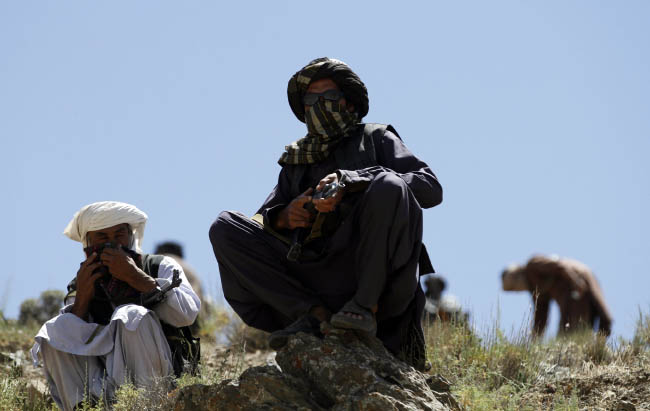The peace deadlock is likely to be broken with the Taliban’s presence around negotiating table. Kabul government has constantly called warring parties, including the Taliban, to hold talks but the militants continued their insurgency killing combatants and non-combatants alike. The Taliban denied to participate in conferences on peace process and intensified their attacks against the Afghan government.
The issue of peace came to stalemate following the death of Mullah Akhtar Mansour, who was killed by the US drone in Baluchistan in 2016. This issue stalled the Quadrilateral Coordination Group (QCG), comprised of Afghanistan, Pakistan, China, and the US, with triggering tension between Islamabad and Washington. On the other hand, the Taliban intensified their attacks in Afghanistan and showed no tendency to hold talks.
According to a report, the Taliban’s political office in Qatar sent a delegation to Islamabad to consider the possibility of resuming peace talks with Kabul government. The report says that Islamabad sent a message to the Taliban’s Qatar office through Mullah Muhammad Abbas, a senior Taliban leader, to hold talks with Kabul government. Pakistani officials further urged the clergy to persuade the Taliban to join peace process.
It is believed that Islamabad’s pressure on the Taliban plays a crucial role in peace talks and bridges the gap between Afghanistan and Pakistan. Afghan officials have frequently hoped for the genuine involvement of Pakistan in peace process but Islamabad said that it has lost its leverage on the Taliban vowing to play its part.
After all, the relation between the US and Pakistan is beginning to thaw after hitting rock bottom with Donald Trump’s harsh tweet against Pakistan claiming that Pakistan gave the US “lies and deceit”. During her meeting in Islamabad, the US Deputy Assistant Secretary of State Wells conveyed to her Pakistani interlocutors that the US wanted to shift to a “new relationship with Pakistan” based on “mutual interest”. Wells had suggested to Pakistani officials that enhancing intelligence cooperation could provide the basis for improvement in ties, especially in counterterrorism cooperation, which is at the heart of the problems in their relations.The US diplomat emphasized that Washington opposed any effort to foment separatism inside Pakistan. “We do not support Balochi (sic) separatism,” she said. She also stated that the US would not support the use of Afghan soil as a base for hostile acts against Pakistan.While praising Islamabad’s “extraordinary” fight against the Tehreek-i-Taliban Pakistan and Jamaatul Arhar, Wells said the US wanted similar efforts against groups trying to destabilize Afghanistan.She pointed out that Washington aimed to find a negotiated political settlement to Afghanistan. And that this was where the US expected Pakistan to play its role. She maintained that “all terrorist forces must be fought against,” and “there can be no good or bad terrorists”.
The decrease in trust deficit between the US and Pakistan will be constructive in peace talks. To build a mutual trust, Islamabad needs to nudge the Taliban to participate in negotiation of peace. So, the Taliban’s delegation for holding talks is believed to be the result of Islamabad’s pressure.
However, trusting the Taliban is a hard issue. Although it is said that the Taliban’s political office in Qatar seeks to resume peace talks, the insurgency continues unabated in Afghanistan. In the past, the Taliban played a foul game and assassinated the head of Afghan High Peace Council (HPC) Professor Burhanuddin Rabbani in 2011, which is against diplomatic acts. Now if the Taliban intend to resume peace talks, they will have to put an end to war and violence. Otherwise, the trip of Taliban’s delegation to Islamabad seems no more than a political game void of bona fide intention. Thus, ceasing war is the first precondition for peace talks.
Bringing the Taliban to peace table does not necessarily mean to persuade them to stop violence and bloodshed. They might set unacceptable preconditions. For example, the complete withdrawal of foreign troops from the country was one of the Taliban’s preconditions in the past which was not acceptable for Kabul government. Secondly, there is no assurance if the Taliban keep their promise. During Hamid Karzai’s administration, a large number of the Taliban’s prisoners were released to meet their precondition for peace, but they returned to battlefields and peace remained elusive.
To sum up, there is still no hope for peace talks for two reasons. First, the Taliban have not decreased their insurgency in the country. Second, the Taliban played a foul game in the past and their presence in negotiation did not reduce militancy. The QCG needs to play its role to convince the Taliban to stop war and violence. If the Taliban outfit still seeks to play a foul game, military deal will be the only option.

